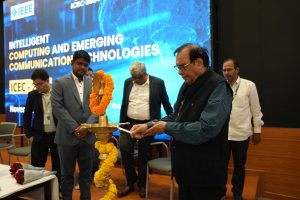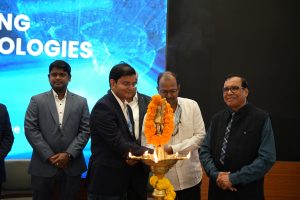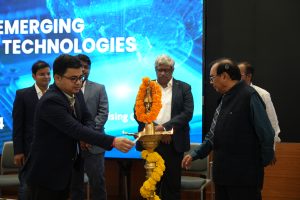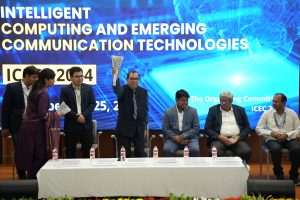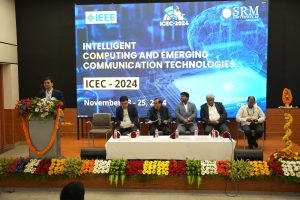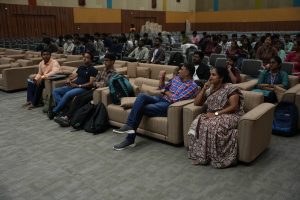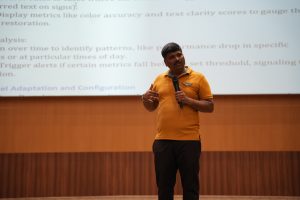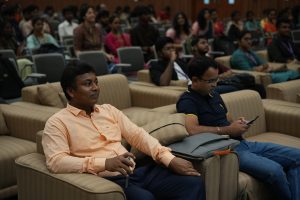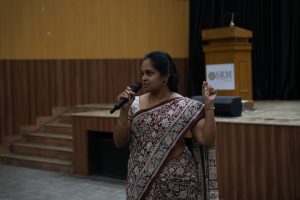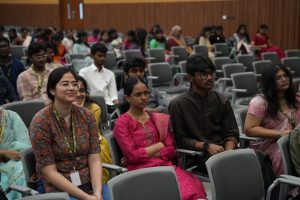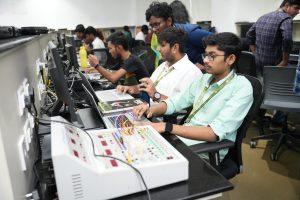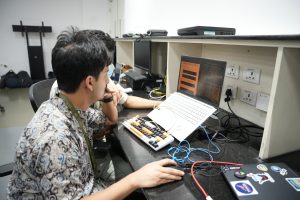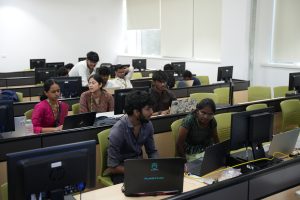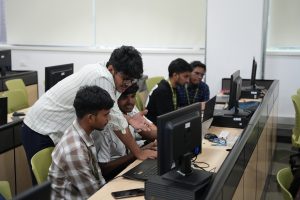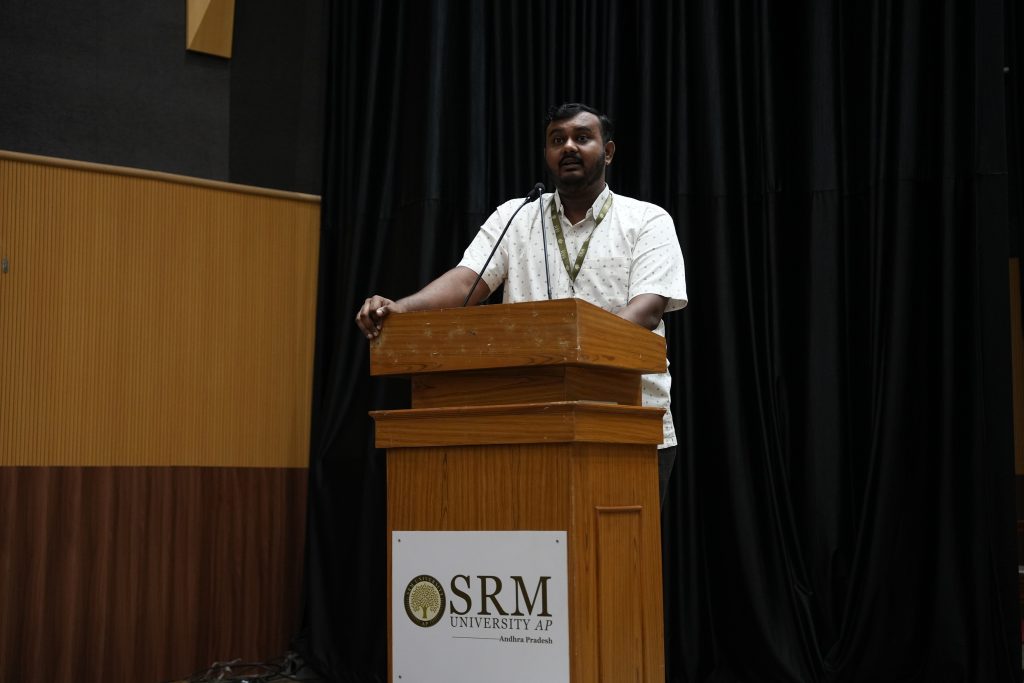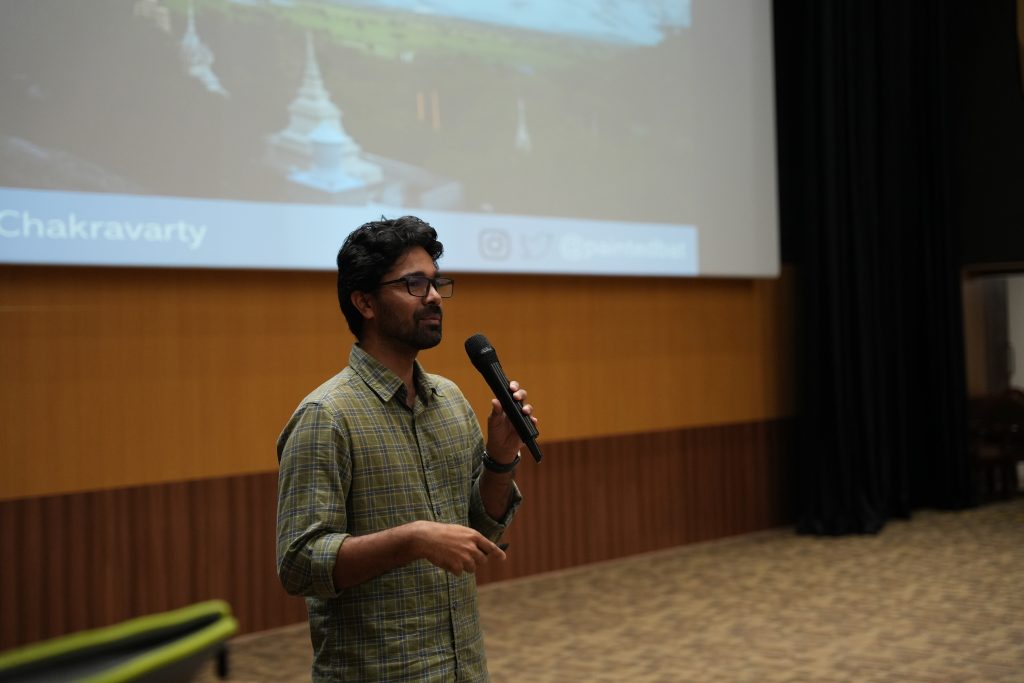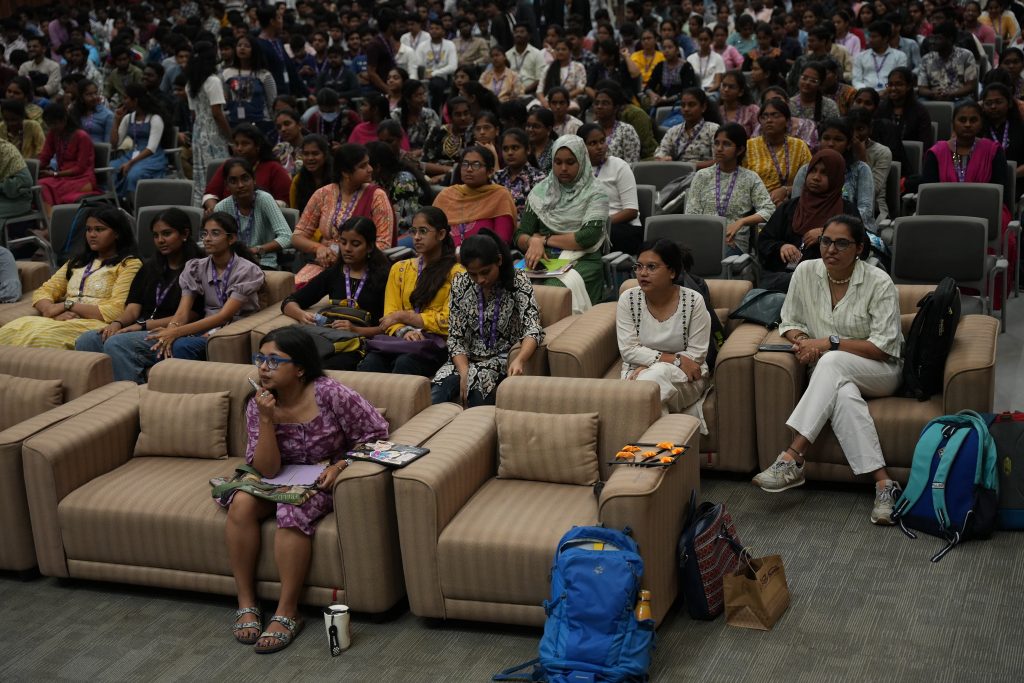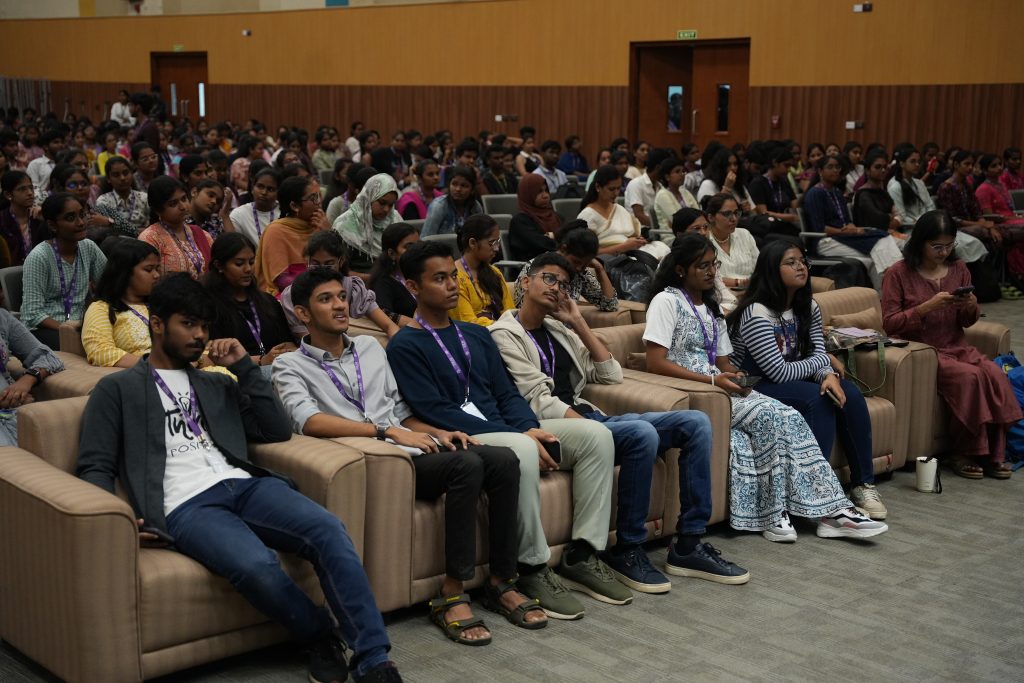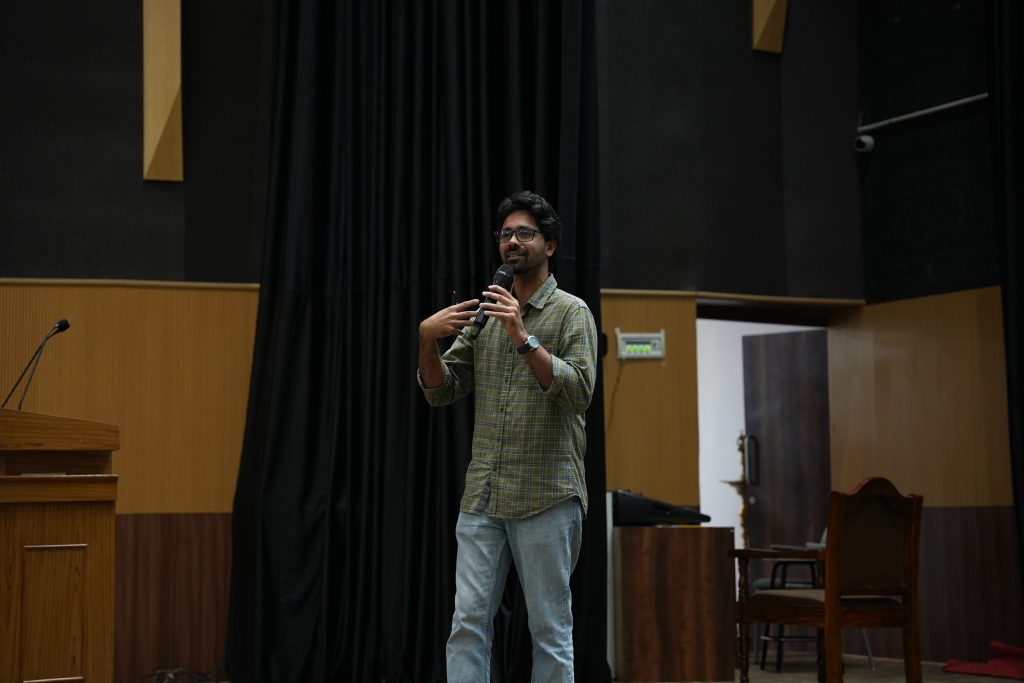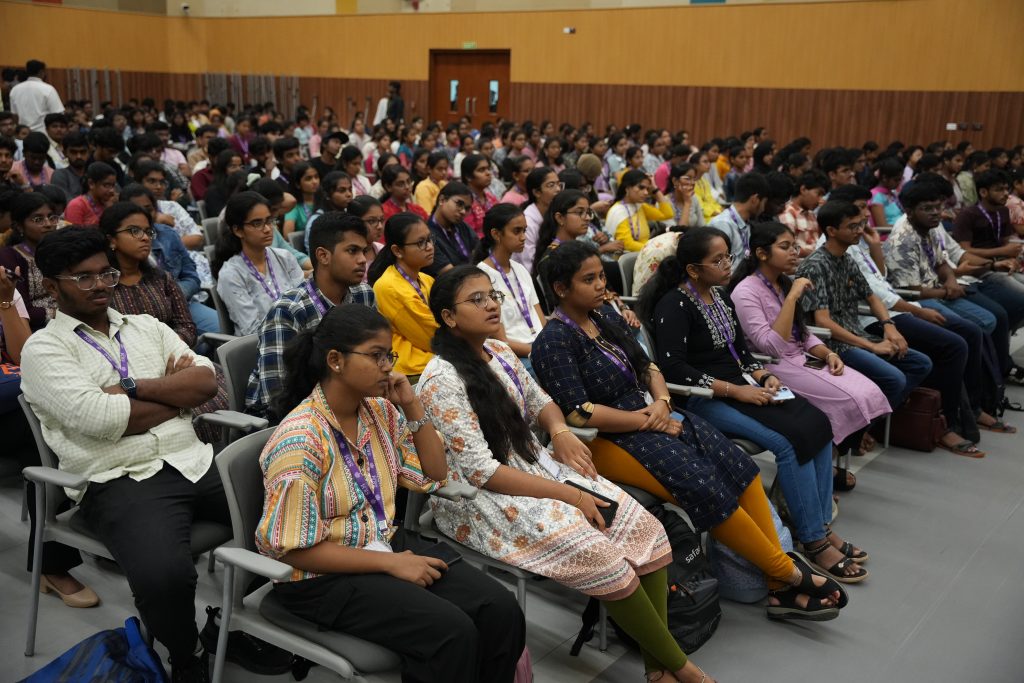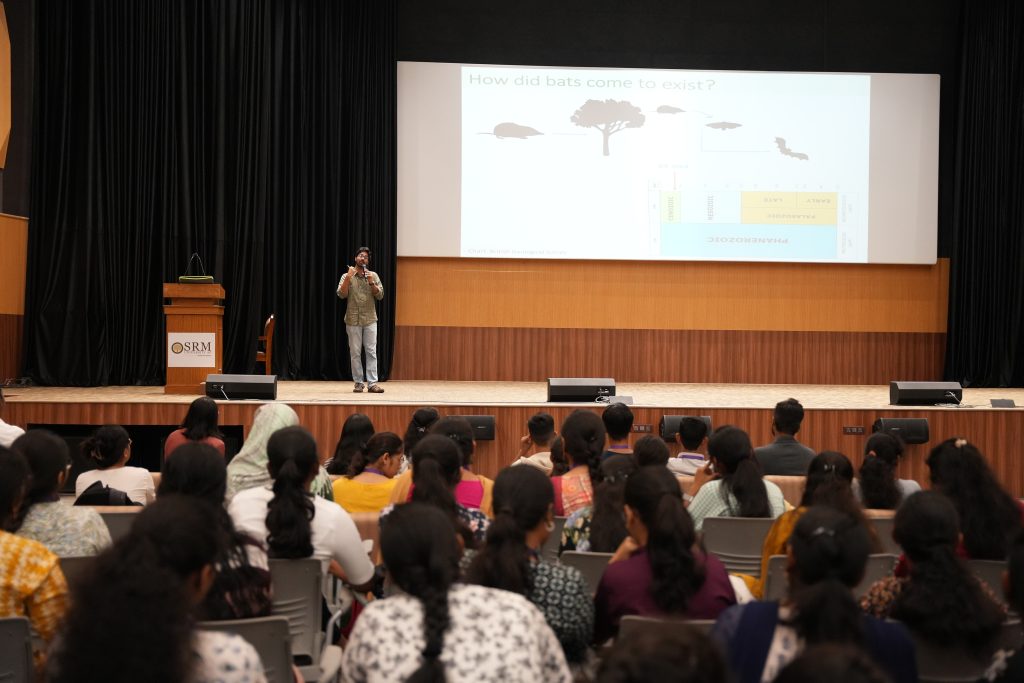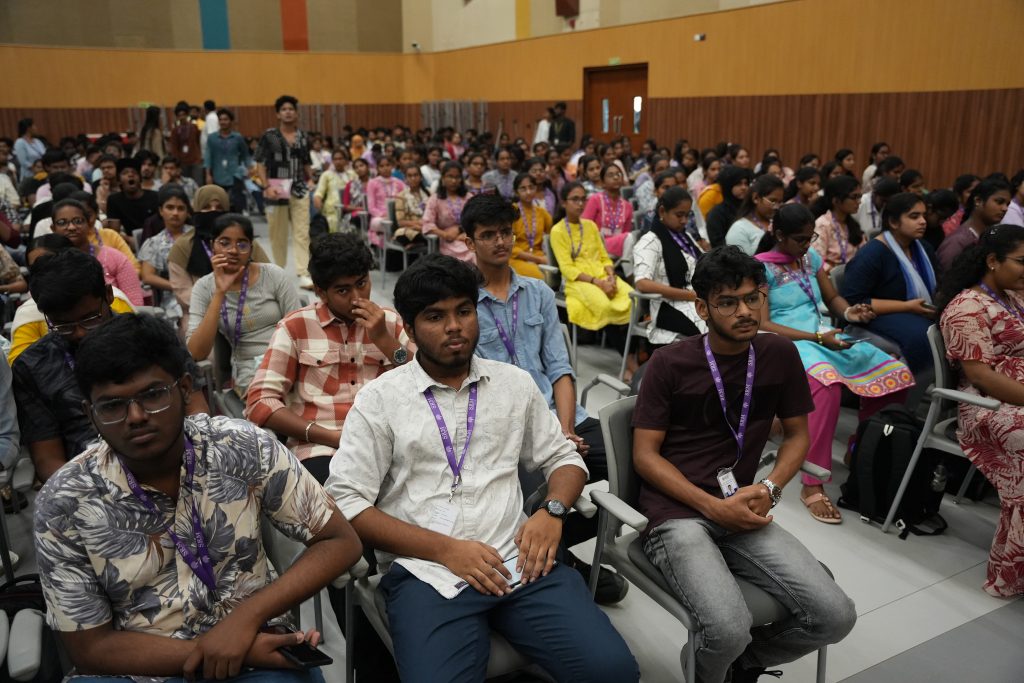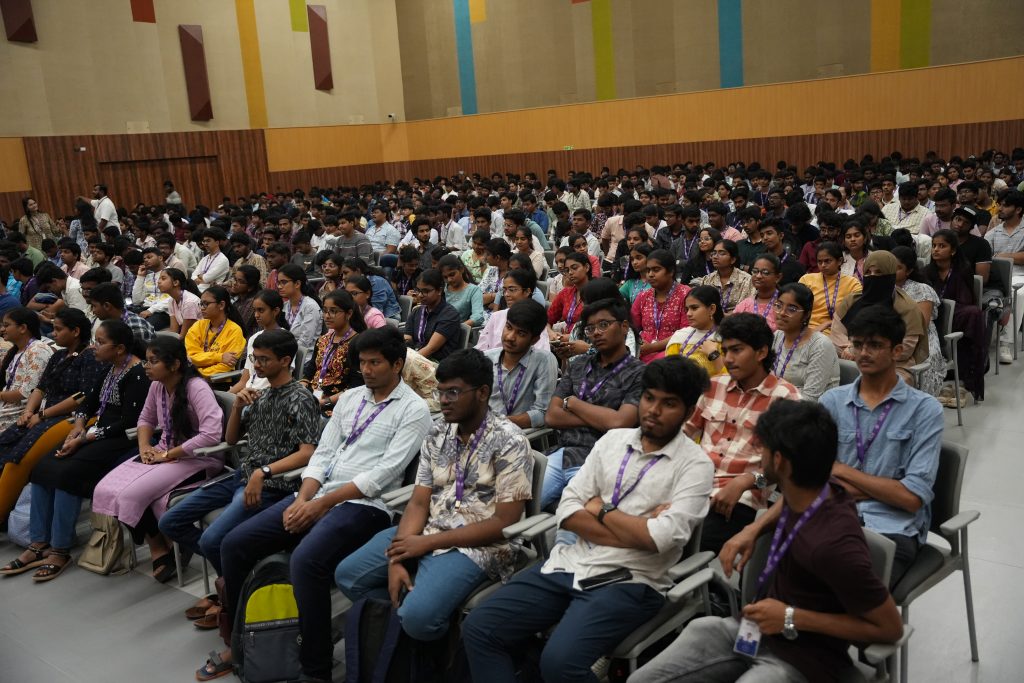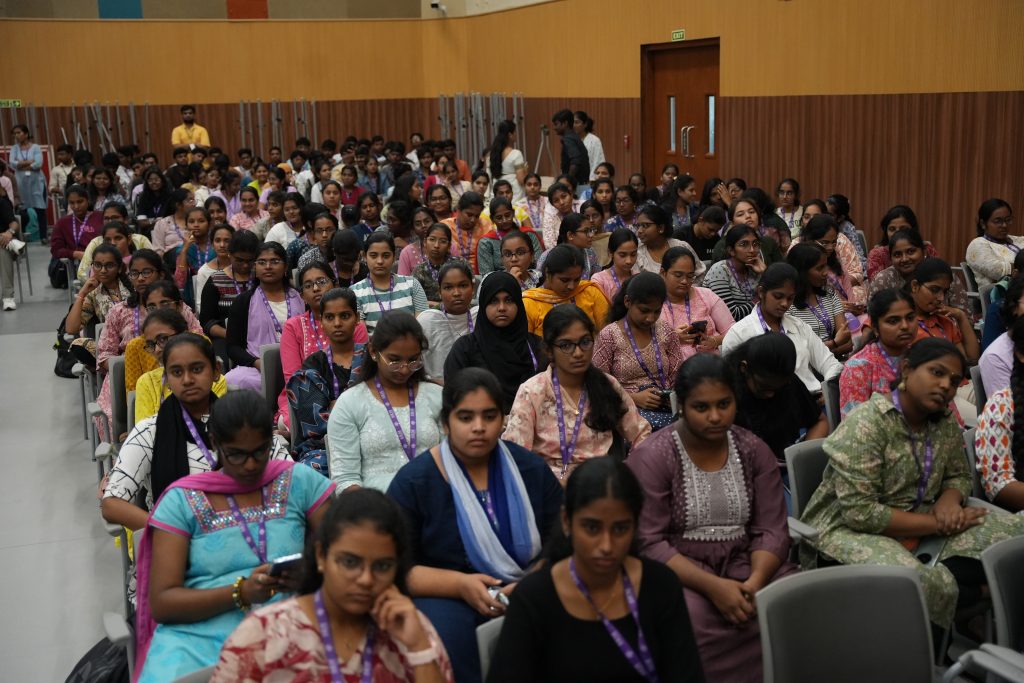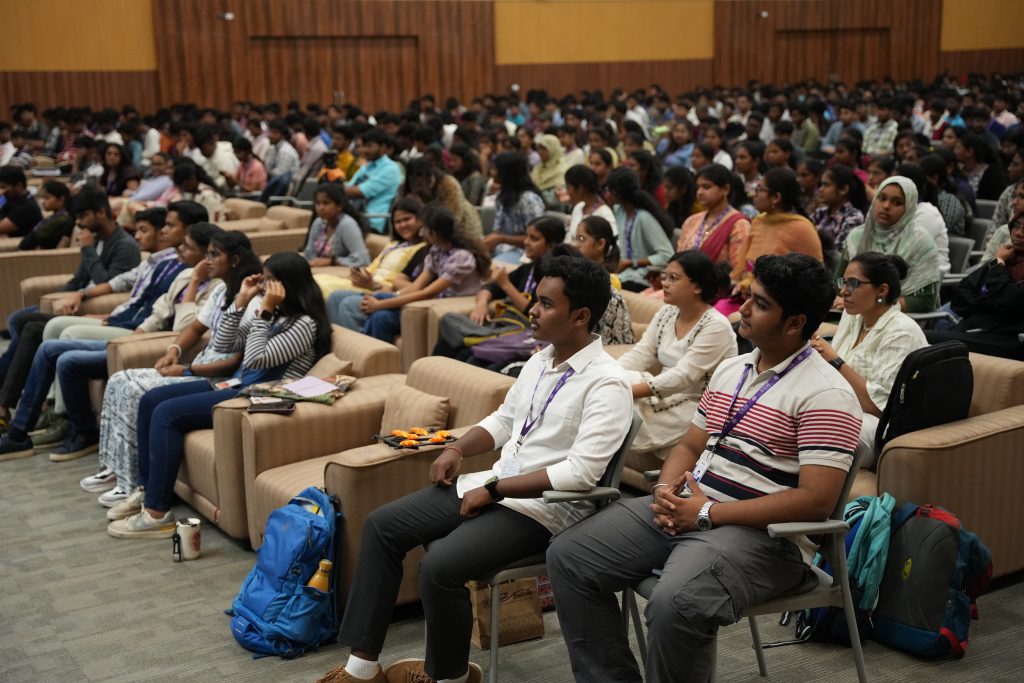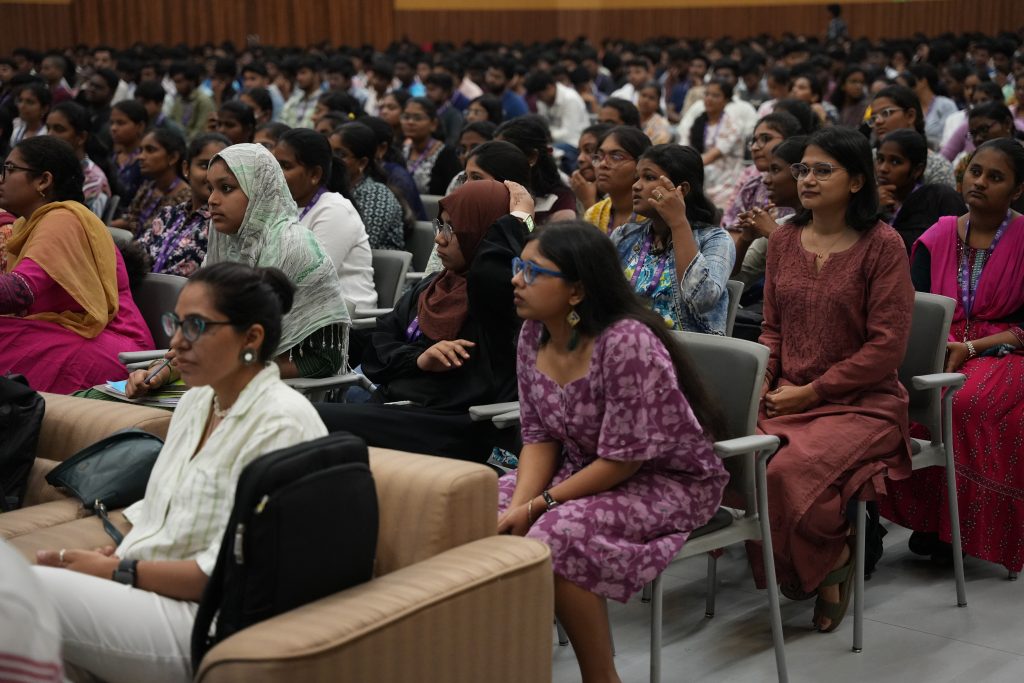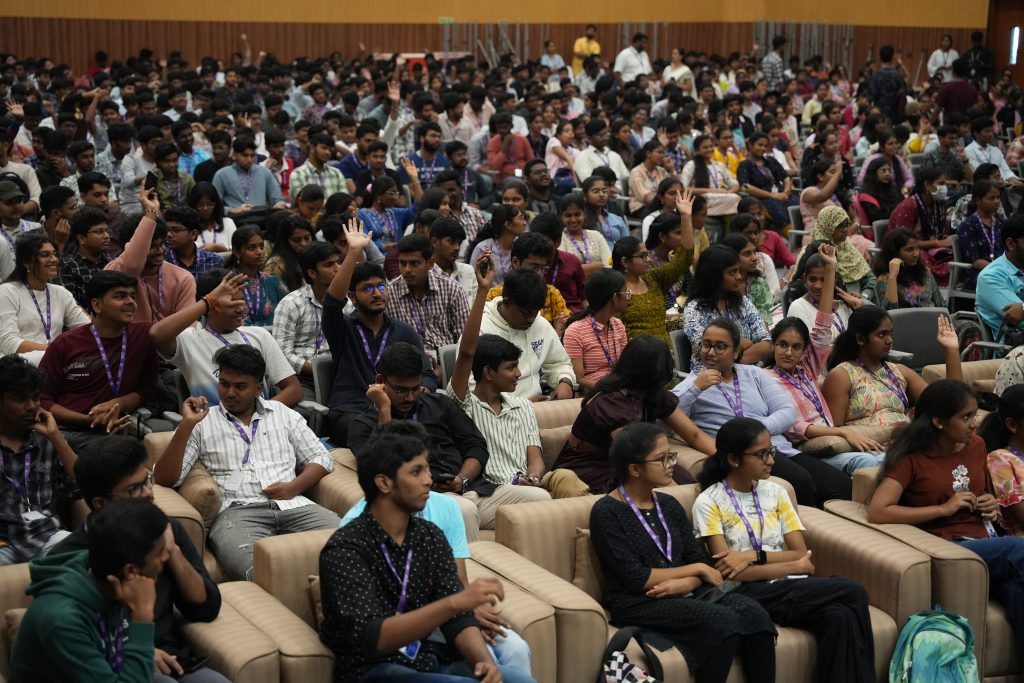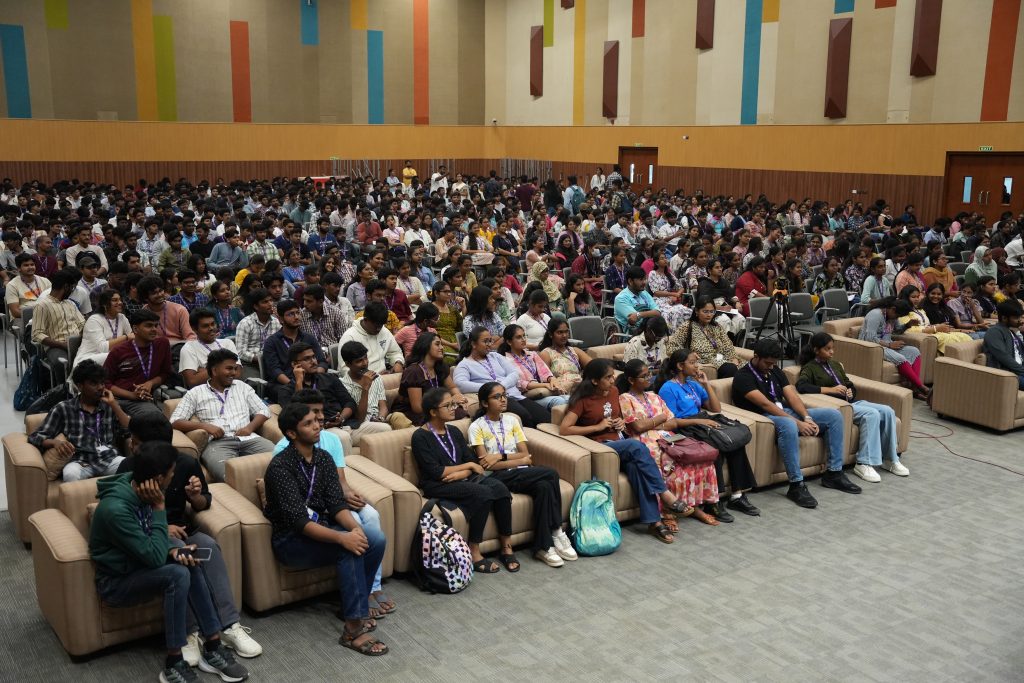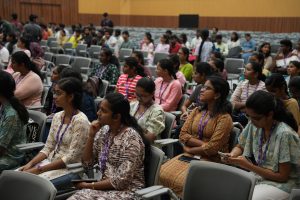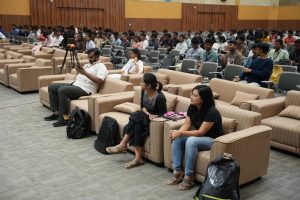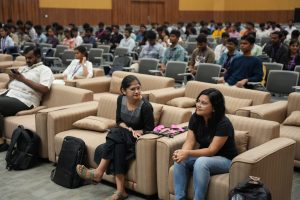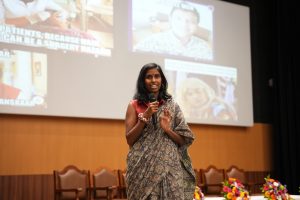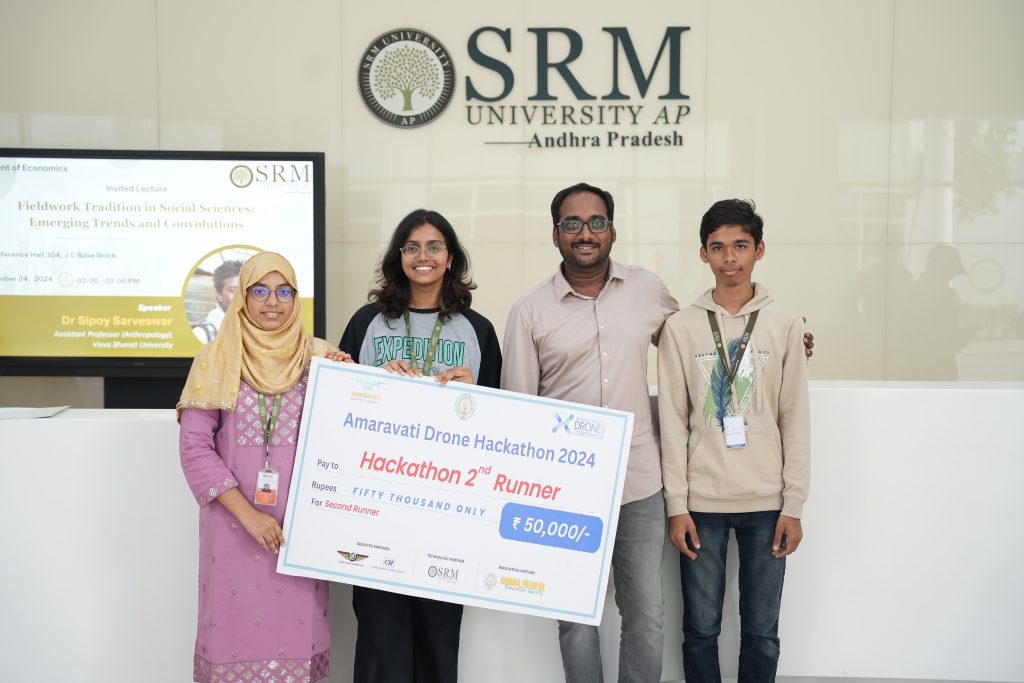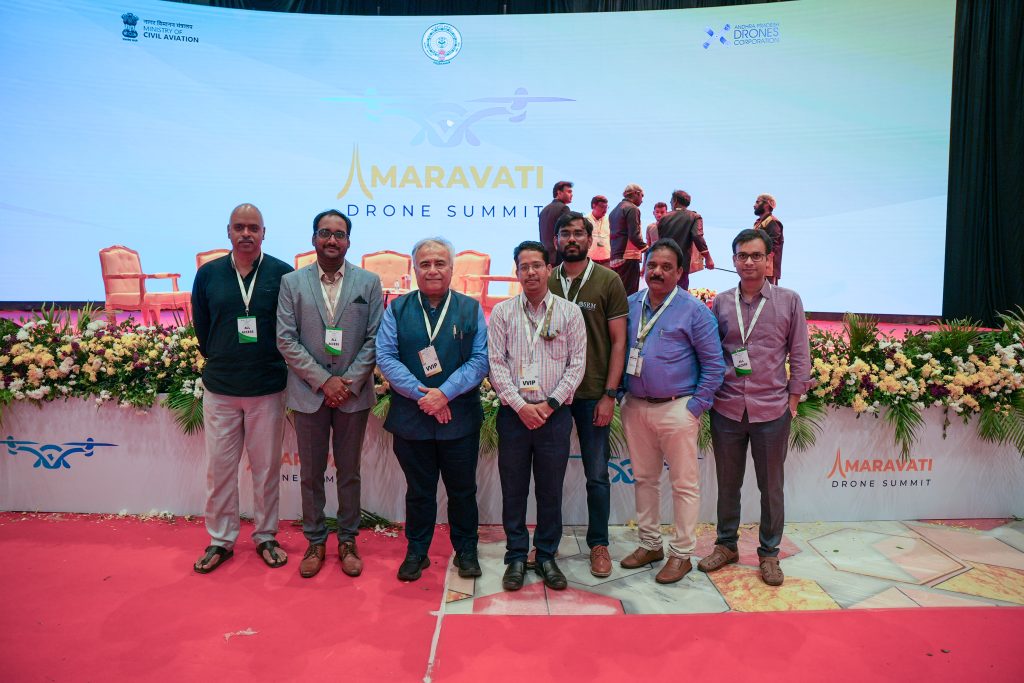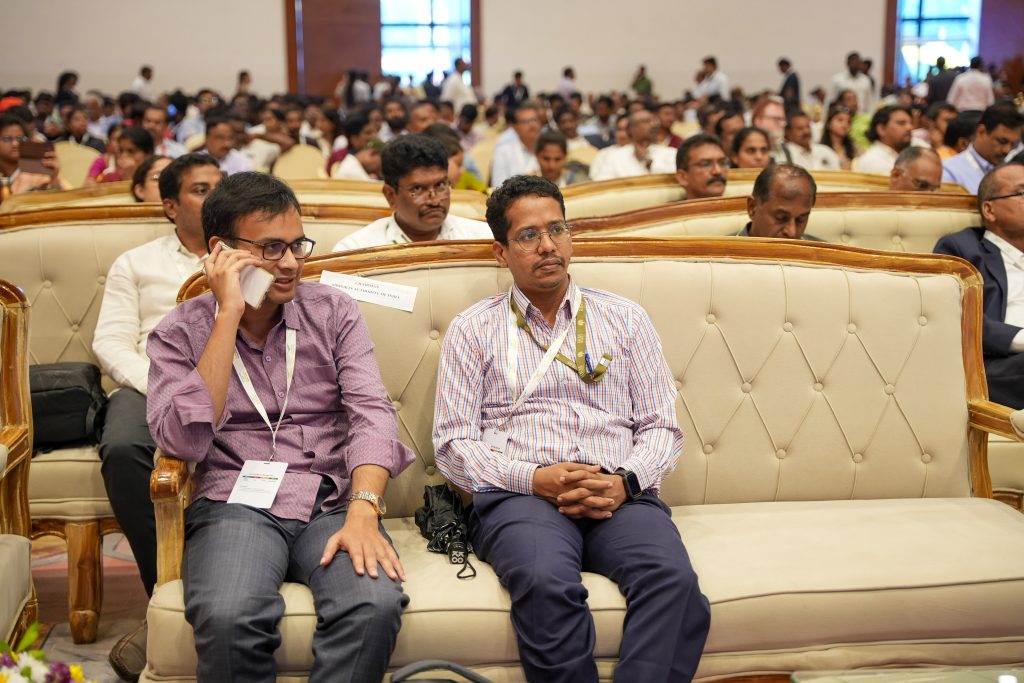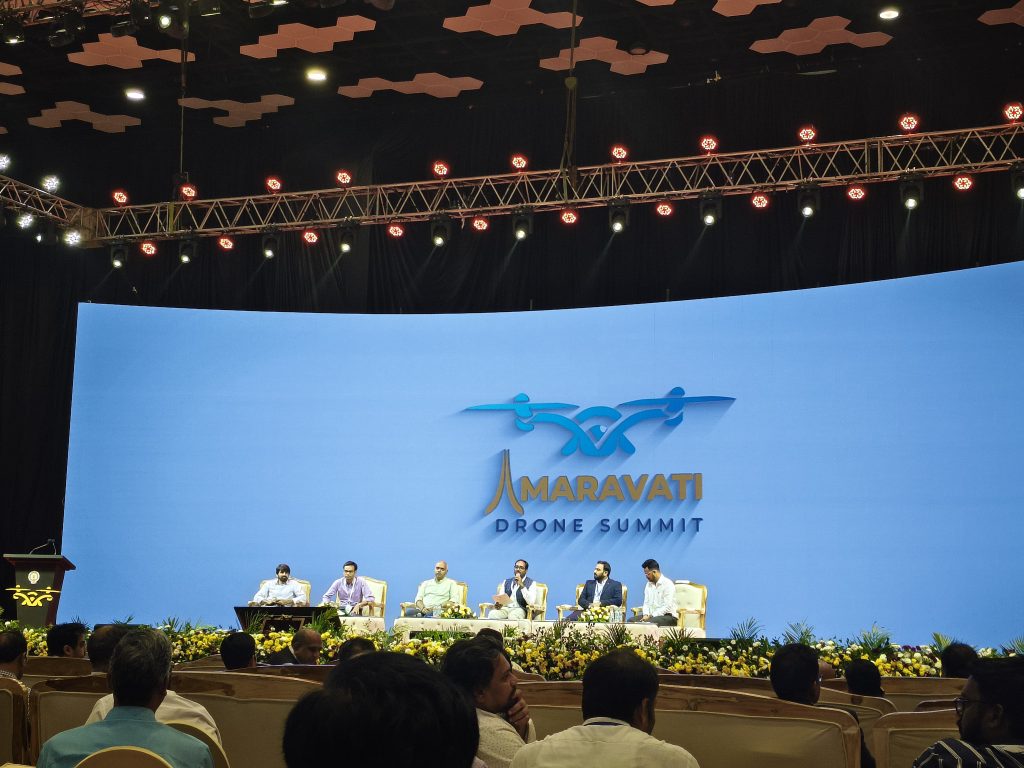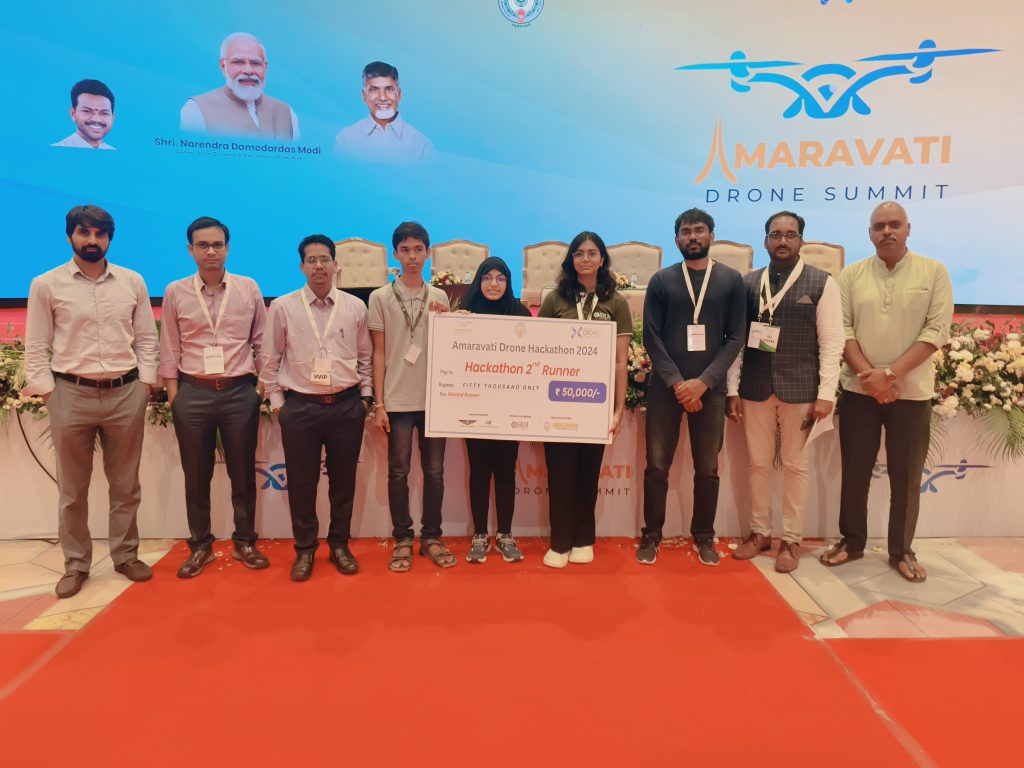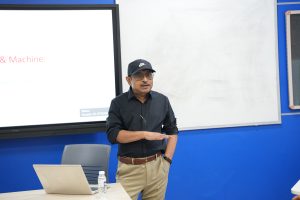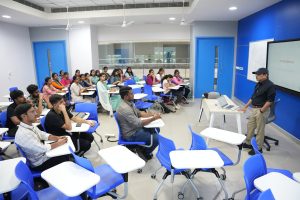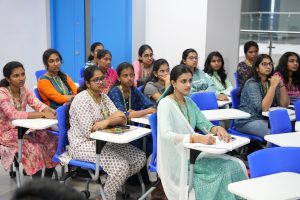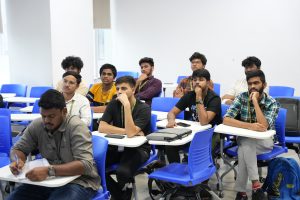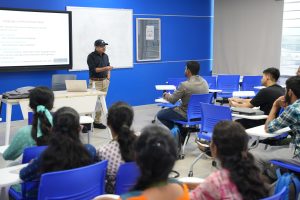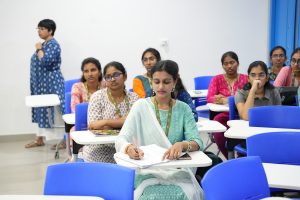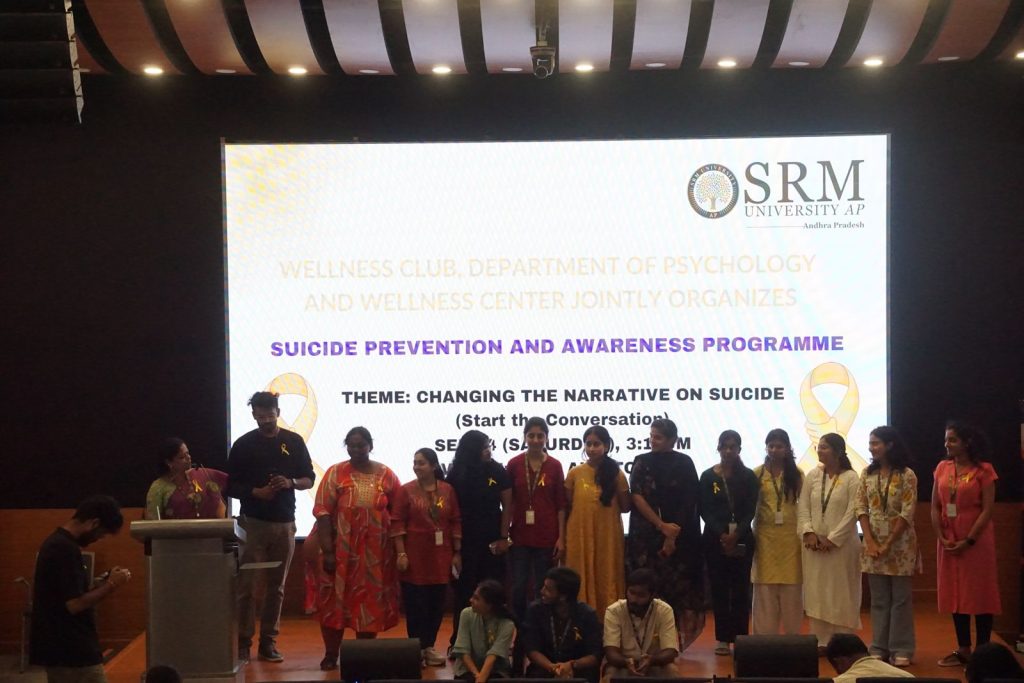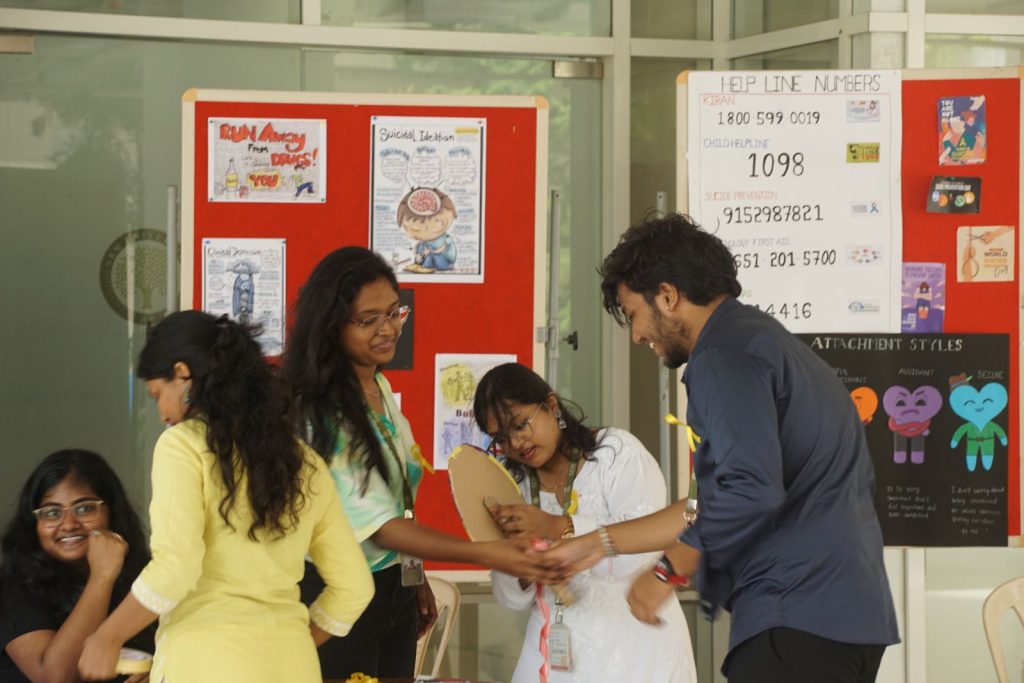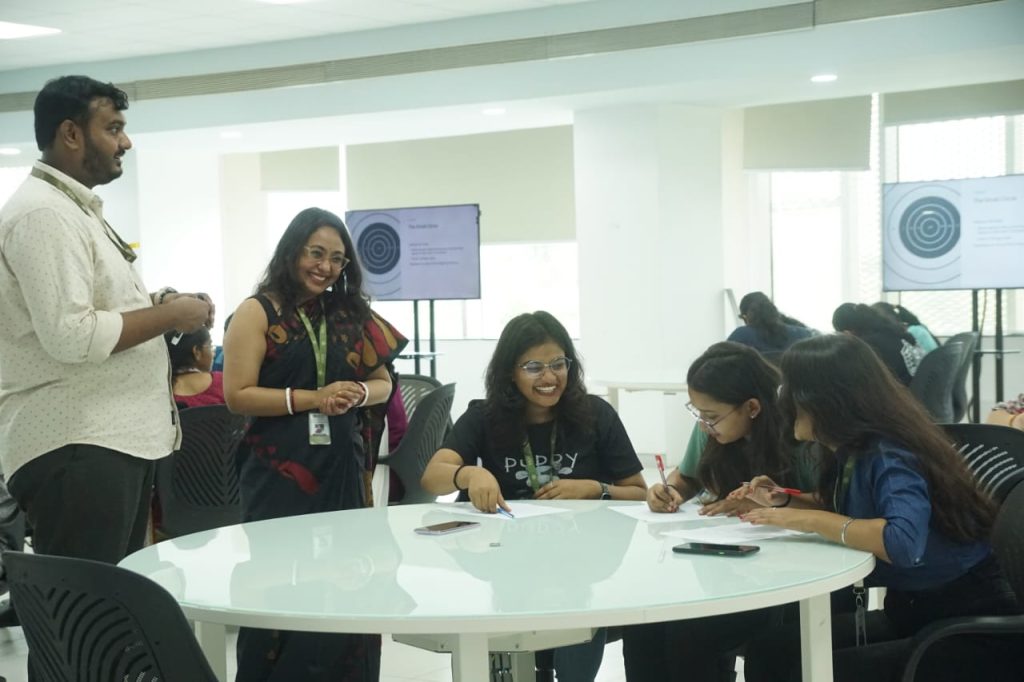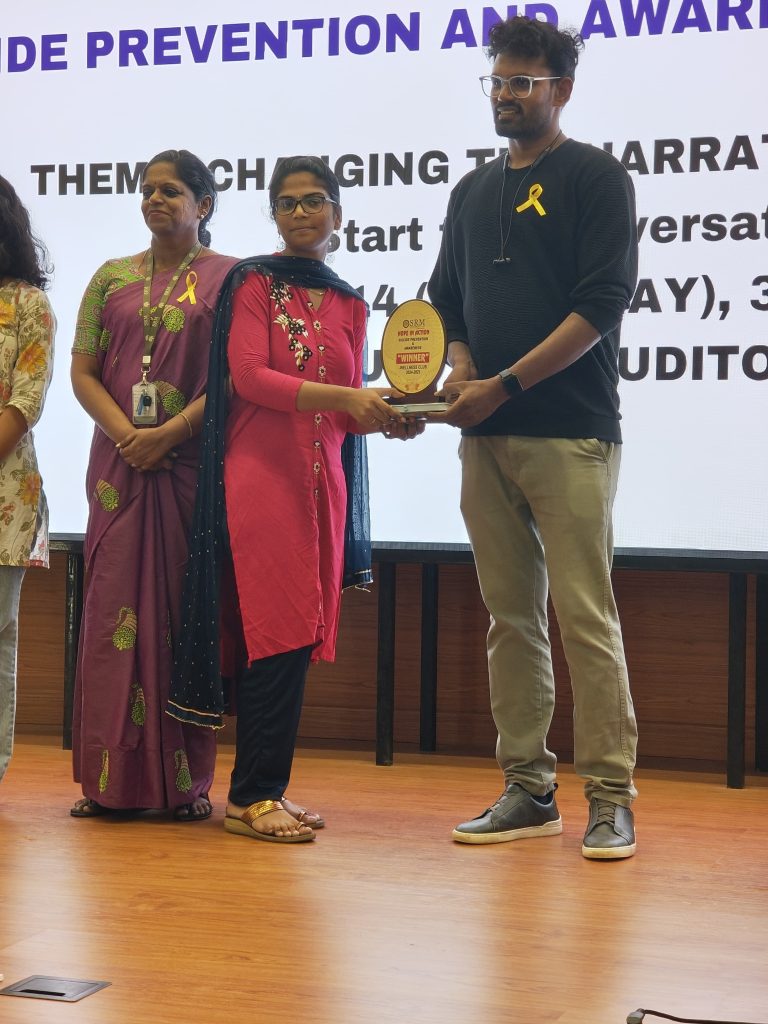ICEC-2024: A Pivotal Event in Emerging Technologies for Computing and Communication
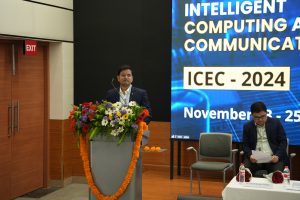 The International Conference on Emerging Computing and Communication Technologies (ICEC-2024) was successfully hosted at SRM University-AP, India, in collaboration with the IEEE Hyderabad Section and IEEE Guntur Subsection. The event served as a vital platform for discussing the latest advancements in computing and communication technologies, attracting a diverse group of scholars, researchers, industry experts, and students from around the world.
The International Conference on Emerging Computing and Communication Technologies (ICEC-2024) was successfully hosted at SRM University-AP, India, in collaboration with the IEEE Hyderabad Section and IEEE Guntur Subsection. The event served as a vital platform for discussing the latest advancements in computing and communication technologies, attracting a diverse group of scholars, researchers, industry experts, and students from around the world.
ICEC-2024 received an impressive 906 research paper submissions, showcasing the conference’s wide-reaching appeal. The organising committee maintained stringent review standards, ultimately resulting in a selective acceptance rate of 15%. This rigorous process led to 137 high-quality papers being accepted for presentation, highlighting the conference’s international recognition, with 24% of the accepted works originating from international authors.
The conference featured seven keynote presentations from distinguished speakers like Prof. Ganapati Panda, Ex-Deputy Director, IIT Bhubaneswar, Prof. Ashish Ghosh, Director, IIIT Bhubaneswar, Prof. Sudip Misra, IIT Kharagpur, Prof. Deepak Puthal, IIM Bodh Gaya, Prof. Korra Sathya Babu, IITDM Kurnool, Prof. Y Vijayalata, Chair, IEEE Hyderabad Section, Prof. Sreenivasa Reddy, Chair, IEEE Guntur Subsection. Their insightful talks offered valuable perspectives on emerging trends and technologies. The lineup also included contributions from other notable academics, enhancing the depth and breadth of discussion at the event.
Participants benefited from intellectually stimulating sessions led by esteemed chairs who facilitated discussions on a diverse range of topics, including artificial intelligence, machine learning, advanced networking, and quantum computing. This environment fostered a vibrant exchange of ideas, promoting innovation through collaborative efforts between academia and industry.
One of the conference’s core themes was the importance of collaboration in overcoming global challenges, emphasising how emerging technologies can play a crucial role in this effort. The high level of organisation and execution was made possible by the dedication of the ICEC-2024 organising committee, including the convener, Dr Sambit Kumar Mishra, and co-conveners Dr Jatindra Kumar Dash, Dr Murali Krishna Enduri, and Dr V M Manikandan. Their efforts, along with the assistance of volunteers and technical teams, ensured a smooth conference experience for all participants.
In recognition of outstanding contributions, 16 papers were awarded the best paper accolade for their exceptional quality. At the closing ceremony, Dr Sambit Kumar Mishra announced that all 137 accepted papers would receive publication in IEEE Xplore, indexed by Scopus. Moreover, approximately 10% of these works would receive extended invitations for submission to the SN Computer Science Journal, published by Springer.
ICEC-2024 left a profound impact on attendees, inspiring a continued pursuit of excellence in research and innovation. The conference not only highlighted the significance of emerging computing and communication technologies but also set the groundwork for future advancements in the field. As participants departed, the buzz of excitement and the spark of new ideas filled the air, marking ICEC-2024 as a truly remarkable event in the technology landscape.
- Published in Departmental News, News
Insights on (Re)Framing Identity by Dr Stella
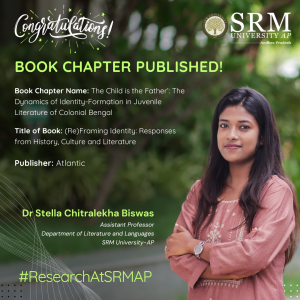 The complexities of identity in literature are a significant area of scholarly inquiry, especially in colonial and postcolonial studies. A key addition to this discourse is Assistant Professor, Dr Stella Chitralekha Biswas’ book chapter on “The Child is the Father: The Dynamics of Identity-Formation in Juvenile Literature.” in the anthology, (Re)Framing Identity: Responses from History, Culture and Literature by Atlantic Publishers & Distributors.
The complexities of identity in literature are a significant area of scholarly inquiry, especially in colonial and postcolonial studies. A key addition to this discourse is Assistant Professor, Dr Stella Chitralekha Biswas’ book chapter on “The Child is the Father: The Dynamics of Identity-Formation in Juvenile Literature.” in the anthology, (Re)Framing Identity: Responses from History, Culture and Literature by Atlantic Publishers & Distributors.
A Brief Introduction to the Book:
This anthology (Re)Framing Identity: Responses from History, Culture and Literature is a significant and timely effort to understand the issues of identity because in the postmodern age, it is one of the highly debated and discussed issues in the field of History, Culture and Literature. In the postmodern age, the question of identity with reference to literature becomes important because the monolithic idea of identity is challenged in both imaginative and critical works. The significance of this anthology also lies in the fact that it scrutinizes the process of identity formation in the Indian subcontinent and problematizes the notions of its unity and continuity across time and space philosophers. This anthology continues the tradition of the critique of identity formation right from Stuart Hall, who, in his article in Questions of Cultural Identity (1996) says, “The deconstruction has been conducted within a variety of disciplinary areas, all of them, in one way or another critical of the notion of an integral, originary and unified identity”. Therefore the purported aim of this anthology is to analyse the conflicts and amalgamation among numerous races, ethnic groups, religions, linguistic acommunities and various other stakeholders and to understand how these conflicts and amalgamations resulted in the formation of diversified identities in the light of Stuart Hall’s ideas, “identities are never unified and, in late modern times, increasingly fragmented and fractured; never singular but multiply constructed across different, often intersecting and antagonistic, discourses, practices and positions. They are subject to a radical historicization, and are constantly in the process of change and transformation”
Significance of the Book Chapter:
The understanding of identity formation has evolved from the philosophical understanding to its discursive formation and further to the neurological understanding of how identity is shaped. The fundamental idea followed in the anthology can be summed in by Stuart Hall, “actually identities are about questions of using the resources of history, language and culture in the process of becoming rather than being: not ‘who we are’ or ‘where we came from’, so much as what we might become, how we have been represented and how that bears on how we might represent ourselves. Identities are therefore constituted within, not outside representation. They relate to the invention of tradition as much as to tradition itself, which they oblige us to read not as an endless reiteration but as ‘the changing same’ not the so-called return to roots but a coming-to-terms-with our ‘routes’. They arise from the narrativization of the self, but the necessarily fictional nature of this process in no way undermines its discursive, material or political effectivity, even if the belongingness, the ‘suturing into the story’ through which identities arise is, partly, in the imaginary (as well as the symbolic) and therefore, always, partly constructed in fantasy, or at least within a fantasmatic field”. This particular analysis of identity formation in the Indian subcontinent under numerous pressures exerted through various mediums like literature, folk theatre and literature and philosophical texts not only in India but outside as well among the Indian diaspora located especially in Euro-American parts of the world, making this anthology a crucial book not only in the country but also at an international level.
Target Audience:
It is inspiriting to read such exhaustive literary anthology by eminent academicians and scholars and broadens one’s horizon of critical thinking as one goes through the collection. The book will definitely open up new trajectories of research in the field of postcolonial studies, bhasha literature and identity theory. It will also motivate students and researchers to explore the formation and representation of identities in the subcontinent in terms of culture, race, ethnicity, language, religion, caste, gender and politics.
- Published in Departmental News, English news, News, Research News
Industry Ignite Hackathon: A 24-Hour Innovative Experience
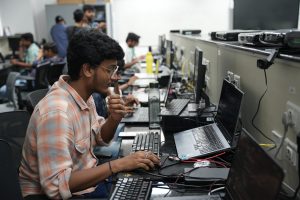 The Industry Ignite Hackathon, conducted at SRM University-AP from November 6 to 7, 2024, was organised by the Department of Electronics and Communication Engineering in collaboration with NanoChip through its Elevium Platform. The event specifically designed for BTech and MTech students, provided them with a valuable platform to address real-world challenges in embedded systems and to facilitate a connection between academia and industry. With a total of 250 participants divided into 18 teams, the hackathon offered a hands-on experience focused on industry-driven problem statements.
The Industry Ignite Hackathon, conducted at SRM University-AP from November 6 to 7, 2024, was organised by the Department of Electronics and Communication Engineering in collaboration with NanoChip through its Elevium Platform. The event specifically designed for BTech and MTech students, provided them with a valuable platform to address real-world challenges in embedded systems and to facilitate a connection between academia and industry. With a total of 250 participants divided into 18 teams, the hackathon offered a hands-on experience focused on industry-driven problem statements.
The inauguration took place at the APJ Abdul Kalam Auditorium, where industry experts from NanoChip presented a complex problem statement related to embedded systems. Following a comprehensive briefing on the hackathon’s rules and expectations, participants commenced their 24-hour coding marathon.
The hackathon concluded with a special session led by Mr. Hari, CEO of NanoChip, who delivered a talk on System on Chip (SoC) Design Flow, offering participants valuable insights into the design process and its applications within embedded systems. Subsequently, representatives from NanoChip showcased their Elevium Learning Process, introducing advanced tools and methodologies for high-performance embedded systems.
The valedictory ceremony celebrated the achievements of the participants, with awards and internships presented to the top-performing teams. The winning team received an Industrial Internship along with trophies and certificates, while the second and third-place teams were also recognised with trophies.
SRM University-AP extended its gratitude to NanoChip, the event sponsors, and the entire organising team, including Dr K A Sunitha, Dean of SEAS, as well as other faculty members, for their steadfast support. The hackathon served as a testament to the varsity’s commitment to fostering collaboration between academia and industry and providing students with opportunities to develop innovative solutions for real-world challenges.
- Published in Departmental News, News
SRM AP Strengthens Ties with Japan University of Economics
 In a step towards broadening horizons and enriching academic opportunities, the Directorate of International Relations and Higher Studies (IR & HS) at SRM University-AP welcomed delegates from the Japan University of Economics (JUE). This milestone event marked the formalisation of a partnership aimed at fostering meaningful academic collaborations and strengthening ties between the two institutions.
In a step towards broadening horizons and enriching academic opportunities, the Directorate of International Relations and Higher Studies (IR & HS) at SRM University-AP welcomed delegates from the Japan University of Economics (JUE). This milestone event marked the formalisation of a partnership aimed at fostering meaningful academic collaborations and strengthening ties between the two institutions.
The signing ceremony was graced by the presence of esteemed representatives from JUE, including Dr Yuzo Tashiro, Director of the International Department and Head of Marketing Course, and Dr Katsunori Takahashi, Associate Professor of Global Business. Representing SRM University-AP, Dr Premkumar R, Registrar, was joined by Mr C.A. Chander Krishnamoorthy, CFO-SRM Group, and Mr Lakshmi Narasimhan, Director-in-Charge of International Relations and Higher Studies. The gathering also included prominent faculty members like Dr Sudeshna Saha, Prof Bharadhwaj Sivakumaran, Prof. Vishnupad Mishra, Dr Manish Kumar, and Dr Srujana Boddu, among others.
This collaboration is more than just an agreement—it’s a shared vision for preparing students to thrive in  a global world. Through this partnership, SRM University-AP and JUE aim to unlock diverse opportunities, including student and faculty exchange programmes, joint research initiatives, semester-abroad programmes, and joint international conferences.
a global world. Through this partnership, SRM University-AP and JUE aim to unlock diverse opportunities, including student and faculty exchange programmes, joint research initiatives, semester-abroad programmes, and joint international conferences.
Japan University of Economics, known for its commitment to industry-focused education, brings a wealth of expertise to the table. This partnership with JUE will open a gateway for SRM AP students to access unparalleled career opportunities in Japan. A standout feature of this collaboration is its alignment with SRM AP’s flagship programme Destination Japan.
The partnership also promises to enhance students’ academic experiences by introducing joint courses focused on Japan’s economy, giving them a deeper understanding of one of the world’s most dynamic economic landscapes. With direct pathways to internships and employment in Japan, this collaboration ensures that SRM AP students are not just academically prepared but also ready to integrate seamlessly into global workplaces.
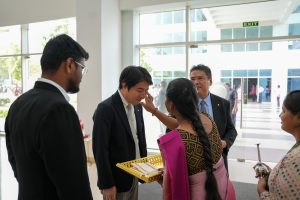
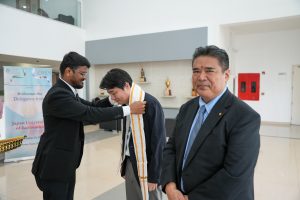
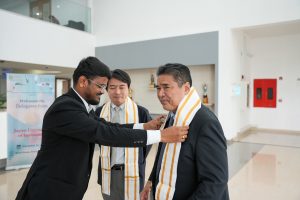
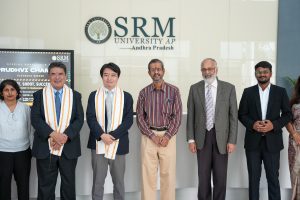

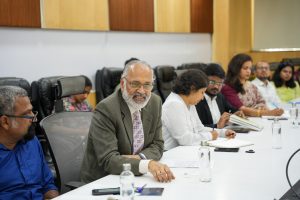

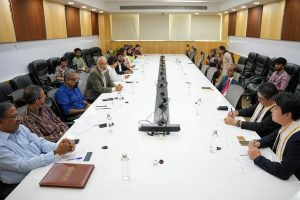
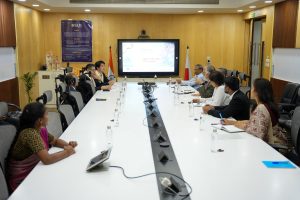



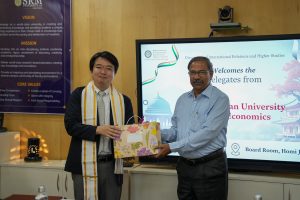
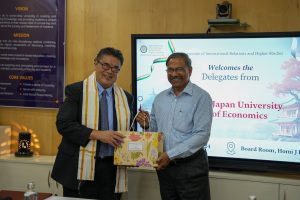


A Session on Interspecies Living and Bio-acoustics by Rohit Chakravarty
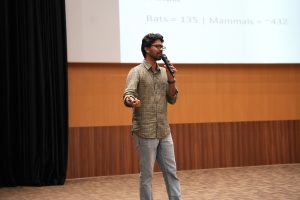
The Department of Sociology and Anthropology under the aegis of Easwari School of Liberal Arts at SRM University-AP hosted a thought-provoking session on November 07, 2024. The session unravelled a fascinating world of interspecies living and highlighted the vital yet often ignored role of bats in our ecosystem. Mr Rohit Chakravarthy, a bat researcher working with Nature Conservation Foundation and Bat Conservation International was the speaker for the session.
The session for the students of Universal Human Values and Ethics focused on inter species living and inclusivity, although misunderstood and feared, bats play a critical role in contributing to the agriculture and beverages industries. The session also revealed that bats are primary pollinators for Durian fruit and tequila, two products that owe their existence to these nocturnal creatures. The session witnessed many such interesting stories that helped to portray bats as less frightening creatures.
However, it wasn’t just science and industry on the agenda. The session brought to life the fascinating social structures within bat colonies and captivating stories of bats sharing food with those in need and even acting as midwives, assisting other bats during childbirth! These behaviours reflect values of care and community that humans can learn from—reminders of how interconnected life on Earth truly is!
The session also acknowledged their association with the deadly viruses such as SARS, COVID-19, and Nipah. As the session drew to a close, students walked away with more than just facts. They left with a renewed appreciation for the world around them.
The second session, directed at Open Elective students studying the Socio-Cultural Dimensions of Sound, dove into the incredible world of bio-acoustics. The lecture explored echolocation used by bats as an important indicator for the military infrastructure for improving sonar technology used in submarines. Students were fascinated by the intricacies of interspecies communication, as bats use sound not only for navigation but also to exchange crucial information about habitat, mating, and potential threats.
The lectures beautifully combined science, ethics, and socio-cultural insights, reflecting the Department’s mission to nurture holistic thinkers and foster interdisciplinary learning. Although unconventional, the talk seemed to open new and diverse avenues for Liberal arts students, inspiring them to walk newer and less trodden paths.
- Published in Departmental News, Liberal Arts News, News
Challenging Norms and Expanding Perspectives with YSK Prerna
 In a world where conversations around gender are evolving rapidly, the Department of Sociology and Anthropology from the Easwari School of Liberal Arts at SRM University-AP hosted a two-part lecture series that sparked introspection, challenged societal norms, and helped foster inclusivity. With honest discussions, cultural references, and meaningful reflections, the sessions resonated deeply with students, encouraging them to rethink what they know about gender.The session saw Artistic Director of Conflictorium – Museum of Conflict, Chattisgarh, and Gujarat, YSK Prerana as its speaker.
In a world where conversations around gender are evolving rapidly, the Department of Sociology and Anthropology from the Easwari School of Liberal Arts at SRM University-AP hosted a two-part lecture series that sparked introspection, challenged societal norms, and helped foster inclusivity. With honest discussions, cultural references, and meaningful reflections, the sessions resonated deeply with students, encouraging them to rethink what they know about gender.The session saw Artistic Director of Conflictorium – Museum of Conflict, Chattisgarh, and Gujarat, YSK Prerana as its speaker.
The first session for the Universal Human Values and Ethics students opened the door to reimagining gender beyond traditional binaries. The discussions tackled pressing issues such as inequality, the choice of motherhood, and the issue of gender-based violence. The session wove in popular memes that students see every day to explore how gender stereotypes are subtly reinforced. The speaker took things a step further, the short film Juice. Set in a household gathering, the movie painted a raw picture of how caste, class, and gender intersect, powerfully illustrating how invisible power dynamics shape everyday interactions.
The session wasn’t about pointing fingers or placing blame. It was about understanding—about seeing the world through a different lens and recognising how ingrained norms can shape perceptions. Students left the room not just with questions but with a drive to seek answers and advocate for change.
The second session, tailored for students of the Open Elective Law and Society, turned the focus inward. It started with a simple question: When did you first become aware of your gender? What followed was an exploration of how gender is more than an identity—it’s a social construct shaped by power dynamics.
Students examined how societal categories like caste and class blend into gendered expectations and how these norms are portrayed through media. But the session didn’t just focus on challenges. It celebrated progress, stressing upon how new meanings and ways of expressing gender are emerging every day.
The sessions made students pause and think about the roles they play in their communities and the changes they can bring. By addressing deeply ingrained issues with honesty and compassion, the Department of Sociology and Anthropology created a space where students could reflect on their own experiences, listen and most importantly ask questions.
- Published in Departmental News, News, Sociology and Anthropology News
Student Innovators Soar to New Heights at Drone Summit 2024
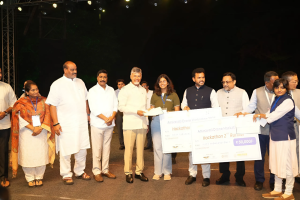 The Amravathi Drone Summit 2024 emerged as a landmark event, uniting industry leaders, trailblazers, and visionaries committed to revolutionising the future of drone technology. This varsity proudly showcased its expertise as the esteemed technology partner for this high-profile summit. The summit was charged with excitement as participants explored an array of drones through impressive exhibitions, engaging hackathons, and thought-provoking panel discussions.
The Amravathi Drone Summit 2024 emerged as a landmark event, uniting industry leaders, trailblazers, and visionaries committed to revolutionising the future of drone technology. This varsity proudly showcased its expertise as the esteemed technology partner for this high-profile summit. The summit was charged with excitement as participants explored an array of drones through impressive exhibitions, engaging hackathons, and thought-provoking panel discussions.
The Hackathon tested the skills and creativity of the brightest minds. Our very own team of second-year Civil Engineering students made waves by clinching the runner-up prize. The winning trio, Ms Nithya, Ms Sumaya, and Mr Hitesh, received a cash prize of ₹50,000. This achievement not only reflected their hard work and dedication but also showcased the exceptional talent nurtured at the university. Under the guidance of faculty members Dr Harish Puppala and Dr Pranav Peddintti, Assistant Professors in the Department of Civil Engineering, these students are poised to become future leaders in drone technology.
The summit also featured notable panel discussions that provided deeper insights into the evolving landscape of drone technology. Among the distinguished speakers was Vice Chancellor Prof. Manoj K. Arora, who served as a prominent panellist in the discussions. He was joined by other faculty members, including Dr Raviteja, Head of the Department of Civil Engineering, Dr Pranav Peddinti, and Dr Harish Puppala, Coordinators of the Centre for Drone Technology and the Centre for Geospatial Technology, respectively, who contributed their expertise on the latest developments in the industry.
With the remarkable performances of our students and the strategic discussions by our faculty, the Amravathi Drone Summit 2024 marks a bold step forward for drone technology.
- Published in CIVIL NEWS, Departmental News, News, Students Achievements
Bridging Minds and Machines: A Guest Lecture on Language Processing
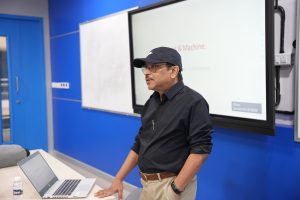 The Department of Literature & Languages hosted a guest lecture for students enrolled in the open elective course “Decoding Language,” which is based on Neuro-Linguistic Programming (NLP). The lecture took place on October 14 and 15, 2024 and featured Dr Debdarsan Niyogi, an authority in Artificial Intelligence, Machine Learning, and Generative AI.
The Department of Literature & Languages hosted a guest lecture for students enrolled in the open elective course “Decoding Language,” which is based on Neuro-Linguistic Programming (NLP). The lecture took place on October 14 and 15, 2024 and featured Dr Debdarsan Niyogi, an authority in Artificial Intelligence, Machine Learning, and Generative AI.
Dr Niyogi’s lecture, titled “Mind & Machine: How Language is Processed,” focused on the intersection of human cognition and artificial intelligence in language processing. He provided in-depth insights into how natural language processing (NLP) algorithms enable machines to interpret and generate human language. The sessions bridged the gap between human linguistic abilities and machine learning models.
Students gained valuable knowledge about the parallels between human and machine language processing. They learned about the complexities of NLP and its real-world applications in AI, data science, and machine learning. This understanding will not only enhance their grasp of neuro-linguistic programming but also prepare them for future endeavours in the growing field of AI-driven language technologies.
- Published in Departmental News, English news, News
Department of Psychology and the Wellness Centre Partner for Mental Health Awareness Programme
 The Wellness Club under the Department of Psychology, in collaboration with the Wellness Center at SRM University-AP, hosted a mental health awareness programme aimed at undergraduate students on September 14, 2024. The initiative focused on raising awareness about mental health and suicide prevention while promoting a supportive campus environment for the students.
The Wellness Club under the Department of Psychology, in collaboration with the Wellness Center at SRM University-AP, hosted a mental health awareness programme aimed at undergraduate students on September 14, 2024. The initiative focused on raising awareness about mental health and suicide prevention while promoting a supportive campus environment for the students.
University counsellors Ms Mohua Das, Ms Alekhya Sankara, and Mr Joel Kristof Gibbs played a pivotal role in the programme, leading discussions and workshops on the emotional and psychological challenges students may face. They addressed critical issues like stress management, anxiety, and crisis intervention, highlighting their extensive experience in supporting students’ mental wellness.
The programme’s objectives included reducing the stigma surrounding mental health issues, encouraging open conversations, and equipping students with tools to recognise warning signs of suicide. Interactive activities, such as the Wall of Hope and Emotional Wheel, engaged participants in expressing hope and reflecting on their emotions.
In addition to discussions, an Art Therapy Workshop provided a creative outlet for attendees, teaching grounding techniques for emotional healing. Students also showcased their creativity through poetry and digital art competitions, with themes centred on hope, resilience, and suicide prevention.
An information booth offered attendees resources on mental health support systems and coping strategies. The event concluded with a Valedictory Ceremony, where reflections on the day were shared, and prizes were awarded to competition winners.
Participants left feeling empowered and equipped with valuable tools to support their mental well-being and that of their peers. This initiative marks a significant step in SRM University-AP‘s commitment to fostering a supportive and safe environment for student mental health. As mental wellness continues to be a priority, the varsity encourages ongoing participation in mental health initiatives to further enhance awareness and support across the campus.
- Published in Departmental News, News, Psychology News, student affairs news
Prof. Mythily Ramaswamy on Exploring the Intersection of Fourier Analysis and Partial Differential Equations
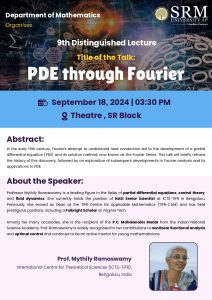 The Department of Mathematics hosted its 9th Distinguished Lecture, “PDE through Fourier” on September 18, 2024. The speaker, Prof. Mythily Ramaswamy, a renowned scholar in the fields of partial differential equations, control theory, and fluid dynamics addressed a crowd of faculty members, PhD students, MSc students, and attendees from various other Departments.
The Department of Mathematics hosted its 9th Distinguished Lecture, “PDE through Fourier” on September 18, 2024. The speaker, Prof. Mythily Ramaswamy, a renowned scholar in the fields of partial differential equations, control theory, and fluid dynamics addressed a crowd of faculty members, PhD students, MSc students, and attendees from various other Departments.
Prof. Mythily Ramaswamy’s lecture delved into the intricate development of partial differential equations (PDE) as influenced by the groundbreaking work on heat conduction by Fourier in the early 19th century. Prof. Ramaswamy, skillfully traced the history of Fourier’s discovery, leading to the formulation of the Fourier Series—a fundamental aspect of solving PDEs. She also explored modern developments in Fourier analysis and its vital applications in the realm of PDEs.
Prof. Mythily is currently serving as a NASI Senior Scientist at the International Centre for Theoretical Sciences (ICTS-TIFR) in Bengaluru, she has held significant positions such as Dean at the TIFR Centre for Applicable Mathematics. A recipient of the prestigious P C Mahalanobis Medal from the Indian National Science Academy, Prof. Ramaswamy is recognised for her substantial contributions to nonlinear functional analysis and optimal control, and she takes pride in mentoring the next generation of mathematicians.
Following the lecture, a lively 15-minute Q&A session provided attendees the opportunity to engage with Prof. Ramaswamy. Participants raised thoughtful questions, which sparked invigorating discussions on the applications of PDEs and the pivotal role of Fourier analysis in modern mathematics. The speaker’s valuable insights enriched the audience’s understanding and prompted further interest in the subject.
The event was deemed a resounding success, significantly enriching the academic experience of all participants. Both PhD students and faculty members gleaned crucial knowledge from Prof. Ramaswamy’s expertise, enhancing the intellectual atmosphere of the university. This lecture is poised to positively impact the institution’s academic reputation and foster future research collaborations. The Department of Mathematics looks forward to hosting more events that contribute to the vibrant academic community.
- Published in Departmental News, Math News, News


